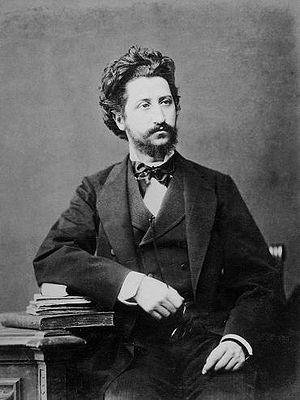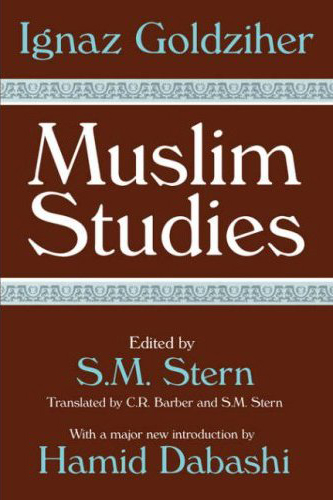
Ignaz Goldzier (1850-1921)
How is one to read an Orientalist — in fact, one of the most learned Orientalists there ever was — today? Isn’t Orientalism over? Did Edward Said not deliver a coup de grace to the aging temple of Orientalism? Is Orientalist scholarship today of only antiquarian interest? Does a scholar like Ignaz Goldziher still have anything to teach students of Islamic studies? Is there in fact any disciplinary validity left to the practice of “Islamic studies”? Has Goldziher’s scholarship not been superseded even by scholars who continue to study Islam in the context of a variety of disciplines (from anthropology to political science), let alone in the aftermath of a fundamental challenge to the epistemic foregrounding of his scholarship? Much of what I have to say in this introduction surrounds not just the particular scholarship that Goldziher best represents but also the more fundamental problem of reading any Orientalist at all, in the aftermath of Edward Said’s Orientalism and the mighty intellectual tradition that it best exemplifies.
In 1984, I received a dual Ph.D. in sociology of culture and in Islamic Studies at the University of Pennsylvania. The seeming paradox stretched between Ignaz Goldziher and Edward Said, to both of whom I was first introduced as a graduate student, has been definitive to my own work on the borderlines of those two disciplines. Between Philip Rieff and the late George Makdisi, with whom I studied sociology of culture and Islamic studies, respectively, Edward Said and Ignaz Goldziher are not mere bibliographical references in the itinerary of an intellectual paradox. They are the presiding figures of an intellectual pedigree that locates and defines me. It is from a confident corner of that space that I wish to share these reflections on two monumental scholars and intellectuals in the making of my own mind.
(From the Introduction to Ignaz Goldziher’s Muslim Studies)



 Columbia University
Columbia University Aljazeera
Aljazeera Middle East Eye
Middle East Eye Springer Palgrave
Springer Palgrave